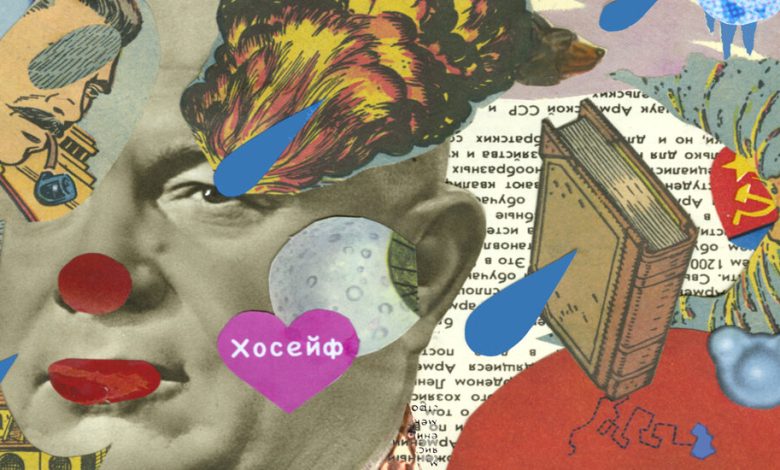This Book Is Baffling, Debauched and Perfectly Human

When the Russian writer Vladimir Sorokin published his 1999 novel “Blue Lard,” a youth group loyal to the Kremlin threw mutilated copies of the book into a giant toilet erected outside Moscow’s Bolshoi Theater. They denounced the work as pornographic, especially outraged by a now-infamous sex scene between Nikita Khrushchev and Joseph Stalin.
But the toilet stunt — histrionic, scatological, tinged with absurdity — could have easily been a set piece in a novel by the very writer the group was protesting. Sorokin, global literature’s postmodern provocateur, is both a savage satirist and a consummate showman. “There’s a big difference between pornographers and writers,” he told the BBC, before the state brought criminal charges against him. “The pornographer aims to help the reader achieve an erection, but the writer’s task is to provide the reader with aesthetic pleasure.”
Sorokin’s fictions often aim for both. To classify him as merely a social commentator or a smut peddler is to overlook the broader distinction of his utterly outré work. His grotesqueries should not be confused with veiled diagnoses of “modern Russia.” They are rather intimations of the paradox, violence, squalor and ultimate mystery of human experience. They weaponize strangeness, shattering expectation and understanding alike. In this way, Sorokin resembles his countryman Gogol, a comic enigma whose wonderfully bizarre fictions — like the best and worst of dreams — beg for interpretation while flouting meaning.
BLUE LARD (New York Review Books, 354 pp., paperback, $18.95),recently reissued in a sensuous and boldly idiosyncratic translation from Max Lawton,resists the kind of pithy summary required to start discussing a book. It begins in Russia, in 2068, when scientists have set about cloning the country’s great past writers in a clandestine Siberian lab. The novels, stories and poems these clones produce are of little importance; the scientists’ true quarry is the blue lard that forms on the clones’ bodies as they perform the “script process.”
This substance, imbued with mysterious potency, is collected to power a reactor on the moon. But before it can be used, a shadowy nationalist sect steals the lard, sending it back in time to an alternate historical Soviet Union. In this skewed timeline, Stalin and Khrushchev are lovers, London is a post-nuclear crater, Roosevelt has murdered six million Jews, and Hitler is a long-haired wizard capable of shooting electricity from his hands.
Like much of Sorokin’s fiction, the plot of “Blue Lard” sloughs easily from the mystical, barbarous structure hidden within it. Intelligibility is beside the point, continuity an almost reactionary concern. What lingers is the uncanny image, the metafictional gambit, the joyful depravity, the sense of convention foreclosed. As with many of my favorite novels, I responded to “Blue Lard” primarily as an extraordinary object of contemplation.
